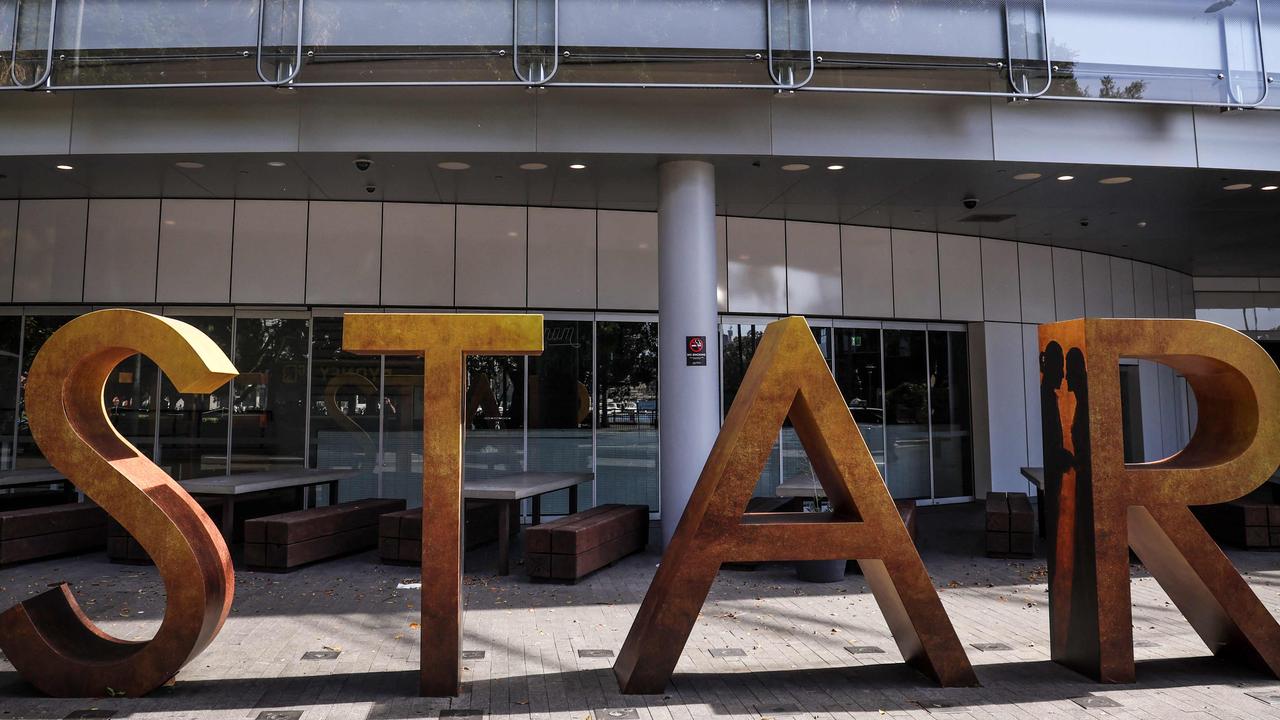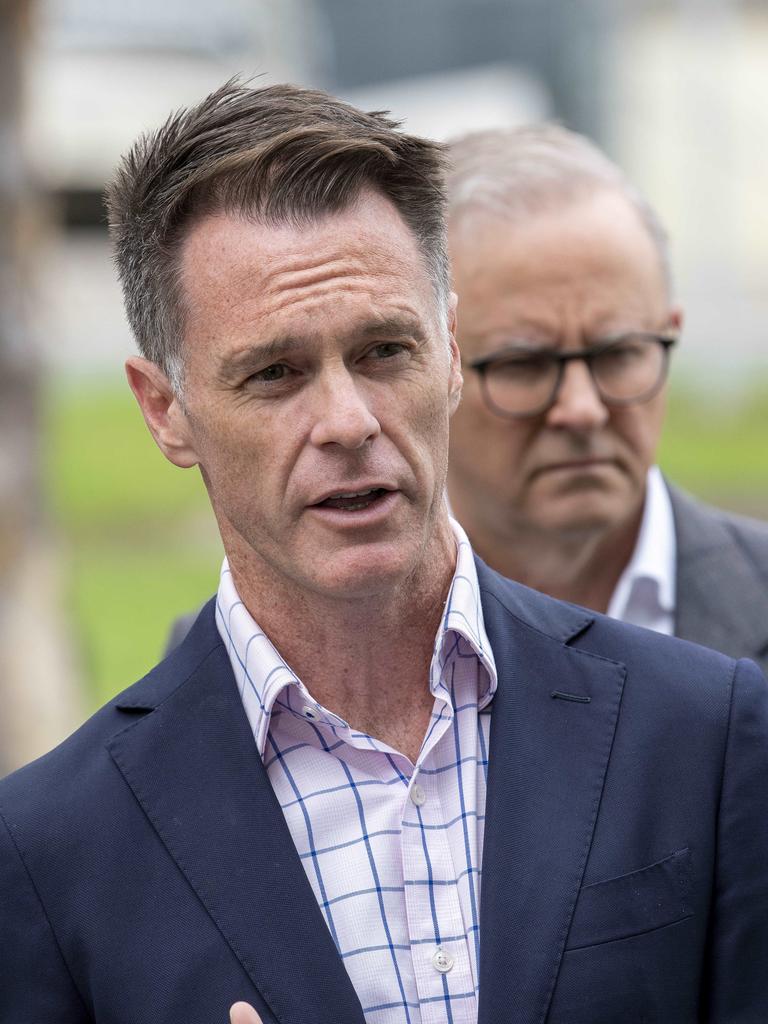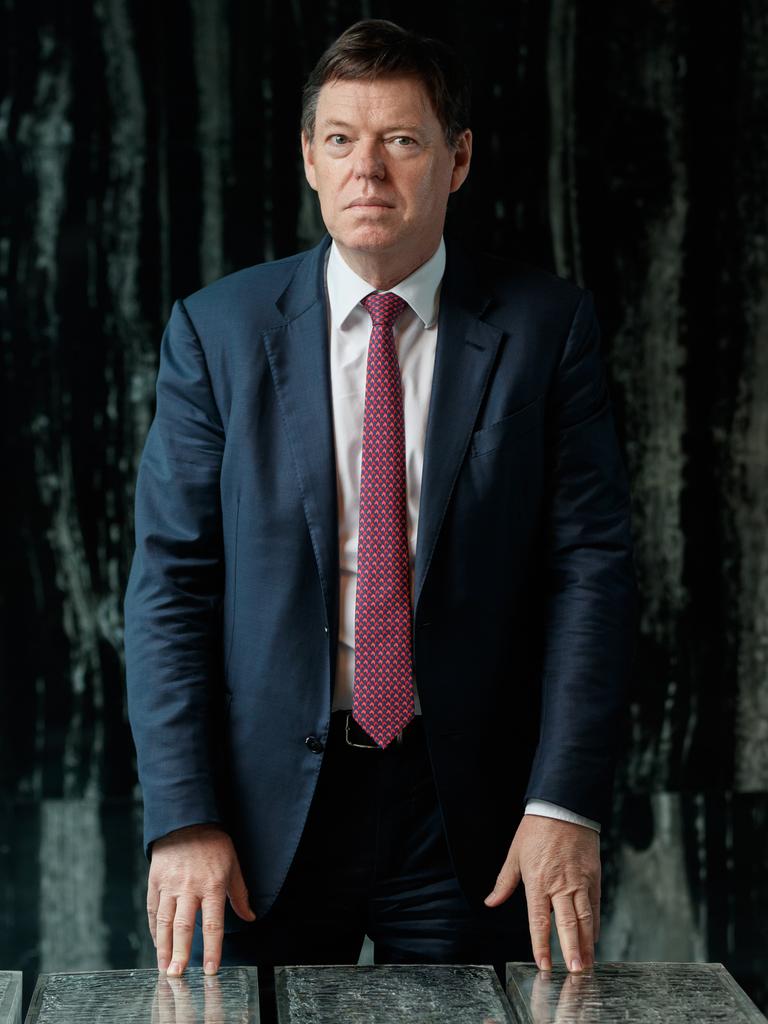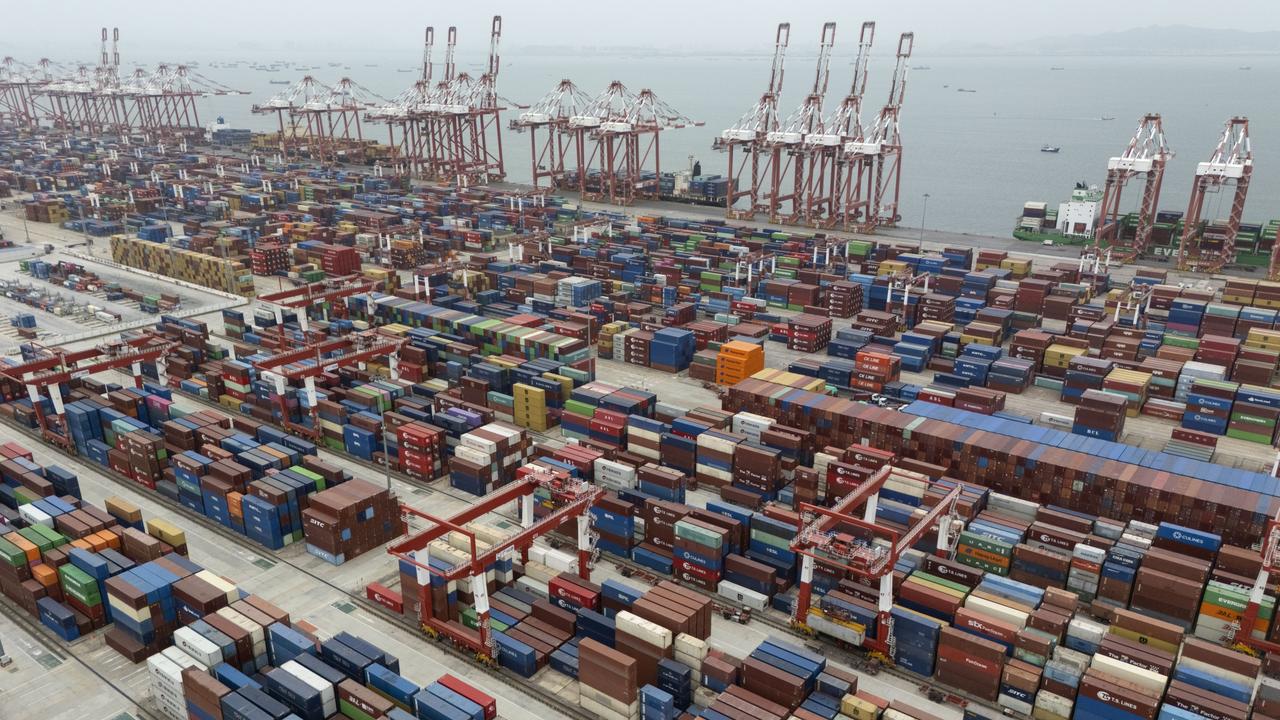NSW can’t hide from the mess it made of Star Entertainment
Even if Star gets through its current issues, NSW is playing with fire over the casino’s longer-term future.

Business
Don't miss out on the headlines from Business. Followed categories will be added to My News.
The question Star Entertainment’s bankers and advisers are grappling with is whether there’s really a longer-term future for the casino in NSW.
Even with the myriad problems in front of it, including exposure to the crushing Queen’s Wharf debt in Queensland, some of Star’s bigger funders believe there is a way Star can get through its cash crunch and find a way to the other side. It won’t be easy, they reason, but on the numbers it is do-able.
However, that optimism starts to run out looking past the next few years. That’s when gaming taxes make a step-change up in NSW, putting real doubt over what sort of business it can support.

Under a deal brokered with NSW Premier Chris Minns to protect jobs, from 2030 as much as 50c in every dollar of profit generated by Star’s poker machines will be earmarked for gaming taxes.
For a company that generates around 70 per cent of its profits in NSW from pokies, there are very few – if any – casino business models that can support this kind of levy, particularly one that employs more than 4000 people in Sydney.
Above all else, it is the gaming tax cliff that has Star’s bankers seriously worried.
Now they’re weighing up whether they’d be better off by taking the pain now and pulling the plug, rather than risk it all by sinking more into a business model where the numbers simply don’t stack up over the long term even if it can get through the coming weeks.
That’s why it comes down to NSW’s willingness to talk.
The extent of Star’s problems were laid bare on Monday when its quarterly cashflow figures showed it is close to running out of time. Star Entertainment’s board, led by former National Australia Bank legal boss Anne Ward, recognised this by explicitly declaring there was a material uncertainty on the casino’s ability to continue as a going concern given the fluid funding outlook. This warning wasn’t made lightly – the next step is to call in administrators.
This takes the Star board’s previous warning up another notch. In last year’s annual report, the going concern question was conditional against a string of specific scenarios coming to pass. Now, it’s a blanket warning.
With the support of lenders, Star has been able to trade through its financial stresses since The Australian revealed last September that it’s board had been working under safe harbour rules that give some protection to directors.
For Star and its chief executive Steve McCann there is one last roll of the dice – seeking at least one year of relief on NSW and Queensland government gaming levies in order to preserve cash.
In NSW that’s as much as $270m alone for the next 12 months, and less in Queensland, but it’s enough to make a difference. It is understood McCann has promised repayment of the taxes to the states over time – along with interest.
At the current rate, Star’s rate of cash burn is unacceptable, with $90m going out the door during the December quarter. This was the result of losses on the operating business and repayments on loans and funding commitments to finish opening of the new Queen’s Wharf facility in Brisbane. There’s also higher regulatory and legal fees.
At the end of December there was just $78m of cash left. And three weeks into the new year this is expected to be even lower.
If not for the $100m in loans made available last September and the conditional promise of another $100m, Star wouldn’t have made it through to the new year.
The second tranche hasn’t arrived yet, and that’s what the banks are weighing up: whether to throw good money after bad.
Losses compounded
Star’s losses have been compounded by problems in Sydney, with tough new cashless gaming rules. There’s been a 23 per cent drop in revenue at Star Sydney on the year and down another 6 per cent on the quarter.
The small bright spot has been McCann’s ability to slash operating costs, pulling back on marketing and capex, to move the Sydney casino back into the black.
McCann still has bankers onside, and they’ve been prepared to consider longer-term options, although there’s a hard limit to this support. The banks too have been directly urging NSW and Queensland for the temporary relief on state gaming taxes. Specifically, the banks feel NSW needs to come to the party given its habit of making life hard and simply washing its hands of any problems it causes.
So far Queensland, which has more to lose from a Star collapse given Queen’s Wharf takes up a big chunk of the Brisbane CBD, has privately signalled it is looking for a way forward.
But as always, the sticking point continues to be NSW and that’s about to have a serious cascading impact across the rest of the business.
Minns has become used to the idea of using Star as a cash cow to pay for the hike in police and hospital running costs and a deeper budget deficit this year. The problem is, if Star crashes, the cash won’t come at all.

The 2030 gaming tax hike represents a longer-term threat to Star’s business model. But a series of short-term decisions taken by NSW has accelerated the demise.
The biggest has been the move to cashless gaming in NSW casinos, rules that don’t apply to pubs and clubs. This has led to a regulatory arbitrage where all the cash is flowing into venues across the suburbs where regulation comes with a lighter touch.
Under the cashless rules, from late last year, casinos in the state, including Crown, have had a daily gaming limit of $5000 per patron. This is set to fall to $1000 in August, further crimping Star’s business model and likely repre-senting a new revenue hit. The limit doesn’t apply to any pubs and clubs, further enhancing their appeal. Finally, and more worrying, there has now been three years of regulatory overreach in NSW.
The state’s gaming commissioner bizarrely ordered a second full-blown inquiry, dubbed “Bell 2” after Star’s former board and management pushed back over factual errors following a review process. That inquiry led to $15m in penalties going to the state government on top of $100m from the first Bell inquiry, but prompted another management and board reshuffle.
McCann thinks this is all navigable, although the 2030 tax is the most problematic for getting longer-term support.
Minns is playing a risky game. He doesn’t want to be seen as soft on gaming, just when his striking train drivers are causing all kinds of havoc across Sydney.
But the shockwaves that will follow the collapse of Star will be far bigger and potentially more distracting – and it will be felt beyond state borders into Queensland. An administrator, too, would demand big upfront fees to keep the business running while it finds a buyer.
An administrator would stop the gaming taxes from day one, with the state joining the line of creditors. It would slash jobs and undoubtedly force the break-up of the business for a sale, leading to a smaller business. Star’s administration would raise questions over the rushed way NSW introduced cashless gaming rules, likely to force other jurisdictions around the world to take notice. A weakened casino business also risks any future investment in building hotels or overhauling facilities.
NSW has to at least take some responsibility for Star’s demise; without this, then Star is as good as folded.
eric.johnston@theaustralian.com.au
More Coverage
Originally published as NSW can’t hide from the mess it made of Star Entertainment









